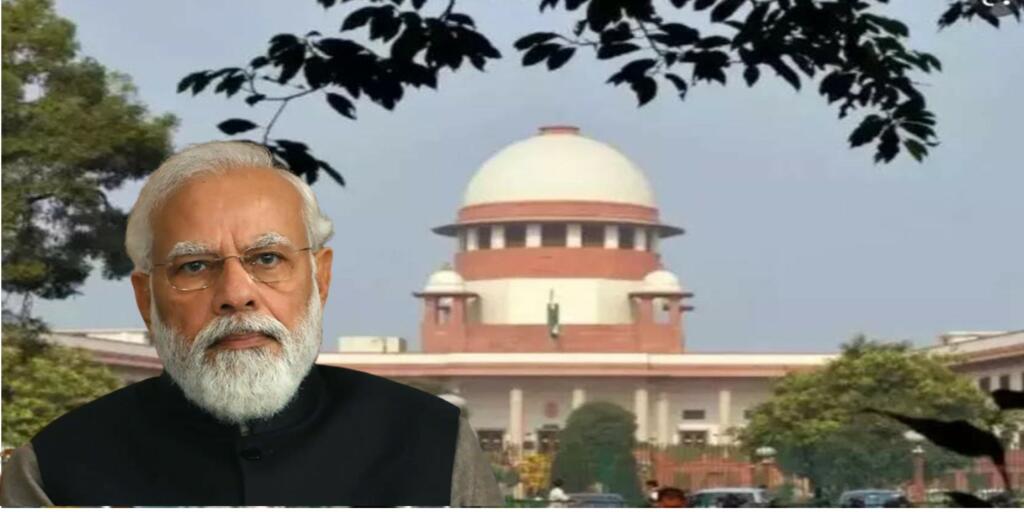Forced religious conversion SC Decision: The rise of liberal philosophies pertaining to freedom of religion endorsed the strengthening of democratic fabric and plurality in the nation. Contrarily, it exposed the nation to innumerable misfortunes as an outcome of religious conversions. Thereby, bullying the very foundations of the rule of law; consequently, implanting the venoms of radicalization into the minds of the populace.
Rugby Tackle with Forced Religious Conversion
Hearing a petition filed by Advocate Ashwini Upadhyay, at the Supreme Court; the Bench comprising of Justices M R Shah and Hima Kohli iterated that “forced” religious conversions are “very dangerous”. It may significantly “affect the security of the nation and freedom of religion and conscience”. Therefore, asking the Centre to take “very serious and sincere efforts” to tackle the issue.
Furthermore, the Court directed the Centre and states to ensure rigorous steps to be taken against such conversions and held, ”…it is better that the Union government may make their stand clear and file counter on what steps can be taken by Union and/ or others to curb such forced religious conversion, maybe by force, allurement or fraudulent means.”
In addition, the court also reprimanded the Solicitor General Tushar Mehta, who appeared for the Centre, as to why the response sought on September 23 has not been filled yet. Directing the Centre to file its response by November 22, the court said, “Why have you not filed counter? Very dangerous thing, everyone has freedom to choose religion but not through force or coercion.” Further the matter will be taken up on the November 28.
Significance of the recent SC Direction
Moving to the fore the aforesaid direction of the court is perceived to be a progressive one. It enshrines the established judicial norm that courts should always pin down retrogression of constitutional principles, even when progression is difficult to achieve. The observation highlights the threat prospects of ‘forced conversion’ to the integrity and security of the nation. The direction is a stepping stone towards a nationwide law on tackling forced religious conversion.
Also Read: What made Christianity what it is today, Chapter 2
Constituent Assembly Debate on Forced Religious Conversion
The view of the Supreme Court is in line with the concerns raised at the Constituent Assembly by various eminent leaders of the past. Shri R. V. Dhulekar, a senior member of the Constituent Assembly highlighted the threats of forced religious conversion as opposed to the integrity and security of the nation and heighted, “I submit that we cannot now tolerate things of this nature. We are being attacked, and we do not want that India’s population, the numerical strength of the Hindus and other communities should gradually diminish, and after ten years the other people may again say that we constitute a separate nation. These separatist tendencies should be crushed.”
However, despite the aversion made by various members, the law on freedom of religion incorporated the provisions for gratuitous profession and propagation. The Right to Freedom of Religion is guaranteed to all Indians by the Constitution under Articles 25 to 28; namely:
Article 25: Freedom of conscience and free profession, practice, and propagation of religion
Article 26: Freedom to manage religious affairs
Article 27: Freedom as to payment of taxes for promotion of any particular religion
Article 28: Freedom as to attendance at religious instruction or religious worship in certain educational institutions
Trepidation associated with Forced Religious Conversion
The quandary associated with forced conversions are not restricted to just endangering of democratic fabric and plurality in India. The trepidation around the changing demographics cannot be ignored as well. The demography of various states across the nation is witnessing radical changes and therefore, a law at the nationwide level is the need of the hour. As per the recent combined study reported by Assam and UP police found that compared to national average of 10-15 per cent, Muslim population increased by 32 per cent in border areas of Nepal and Bangladesh. Moreover, the incident of religious conversions by Christian Missionaries is a ubiquitous Pan-India phenomenon.
Support TFI:
Support us to strengthen the ‘Right’ ideology of cultural nationalism by purchasing the best quality garments from TFI-STORE.COM
